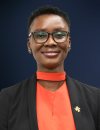A Practical Business Guide For Clients
Posted on Fri 24 Apr 2020
- Download Resource
The global impact of the Coronavirus (“COVID-19”) outbreak on individuals, communities and businesses is rapidly evolving. COVID-19 has not only created an alarming health crisis around the world, but also a significant economic, business and commercial disruption. Nigeria has also been largely affected by the impact of COVID-19. On March 30, 2020, the Nigerian President, Muhammadu Buhari issued a lockdown order, as set out in the COVID-19 Regulations 2020, directing the closure of all businesses (except for essential services providers) and the cessation of all movement in Lagos State, Ogun State and the Federal Capital Territory for an initial fourteen , from March 30, 2020 till April 13, 2020 and a further fourteen (14) day extension (“Lockdown Period”). In addition, some States including Edo, Imo, Kano, and Katsina which are not subject to the Lockdown Period, have also issued local guidelines and curfews, restricting movement in the respective States. The six (6) Governors in the South-West region (Lagos, Ogun, Oyo, Osun, Ondo, and Ekiti) on April 16, 2020 jointly agreed to close the region’s borders as part of the measures to prevent the spread of COVID-19. As a result, businesses across the country are having to reconsider the broader implications of their business decisions and the best strategies moving forward, to navigate these uncertain times.
This practical business guide for clients[1] (the “Guide”) highlights current business and operational issues in Nigeria .in the face of COVID-19, and recommends some practical steps to address the highlighted issues including exploring palliative measures put in place by the Federal Government of Nigeria (“FGN”).
In one of our several COVID-19 related publications, we extensively addressed all policy, regulatory and legislative measures put in place by the FGN, the Central Bank of Nigeria (“CBN”) and the organized private sector, to mitigate the negative effects of COVID-19 as at April 1, 2020.
Please note that the practical considerations outlined below each header, are dependent on the specific context of each business and its unique circumstances regarding exposure to COVID-19. In addition, organizational priorities are likely to evolve, depending on the development of COVID-19 in Nigeria.[2]
Some identified business and operational issues and practical action steps are outlined below:
(A) DEBT SERVICE:
Concerns –
· Ability to service loans;
· Ability to satisfy non-payment obligations.
Practical Considerations –
· Borrowers who are not yet in default may want to utilize undrawn commitments or accordion or additional facilities;
· Borrowers who foresee a likely default on payment obligations should inform lenders ahead and initiate discussions to re-negotiate terms of their existing facility/credit agreement including:
o Deferral of interest or scheduled amortization payments;
o Revision of financial covenants;
o Revision of positive undertakings that may not be feasible if state lockdowns persist;
o Requests for relevant waivers.
· Businesses may also need to assess and revise their capital expenditure budgets and consider utilizing unencumbered assets as security to meet current liquidity and borrowing needs;
· It is a crucial time for borrowers and lenders to begin open and continual dialogue before the likely occurrence of a default on a facility.
Regulatory Responses –
1. CBN Intervention Funds –
As part of its initial policy measures and to cushion the negative impact of COVID-19 to businesses and the economy (“Initial Policy Measures”), the CBN introduced certain intervention funds/facilities (the “Intervention Funds”). The Intervention Funds are applicable to households, small and medium-sized enterprises (“SMEs”) and heavily affected sectors of the economy and has been extensively discussed in our recent publication.
Some key benefits from the Initial Policy Measures include:
o extension of moratorium (for an additional year) on all CBN intervention facilities, effective March 1, 2020;
o reduction in the applicable interest rates on all CBN intervention facilities from 9% to 5% per annum, effective March 1, 2020;
o establishment of a N50 Billion targeted credit facility for households and micro, small and medium scale enterprises particularly affected by COVID-19;
o establishment of a N100 Billion targeted credit facility for the capacity expansion of the healthcare industry;
o deposit money banks (“DMBs”) have been granted leave to extend the tenor of credits given to businesses and households affected by COVID-19, particularly in the oil and gas, agriculture and manufacturing sectors; and
o further support for the industry funding levels (by providing liquidity backstops as the CBN being the lender of last resort).
Practical Considerations –
Obtaining Additional Information –
· Prospective beneficiaries of the Intervention Funds may want to approach DMBs and Development Finance Institutions (“DFIs”) to obtain clarity on their eligibility and additional information on the Intervention Funds.
Due Diligence –
· The Nigeria Incentive-Based Risk Sharing System for Agricultural Lending (“NIRSAL”) Microfinance Bank is the participating financial institution (“PFI”) which will be responsible for conducting due diligence audits on prospective beneficiaries of the N50 Billion targeted credit facility;
· DMBs and DFIs will also serve as the PFIs which will be responsible for conducting due diligence audits on prospective beneficiaries of the N100 Billion targeted credit facility;
· Prospective beneficiaries of the Intervention Funds may want to ensure that all relevant documentation to be requested by PFIs are up-to-date and that they duly demonstrate their worthiness and business proficiency for eligibility of relevant Intervention Fund(s).
Negotiation –
· Businesses must note that the Intervention Funds, whilst generally beneficial to the eligible entities, need to be negotiated. Prospective beneficiaries of an Intervention Fund will have to pay attention to the terms of the relevant facilities and negotiate same, bearing in mind the long-term business and economic projections, and negotiate same accordingly.
Business Repositioning and Continuity Plans –
Accessing the Intervention Funds will be valuable for eligible entities, given the current times. However, businesses may need to put plans in place to ensure that they are in a position to repay the accessed Intervention Fund(s), as at when due. As such, businesses may consider:
· the development of a business continuity plan, including remote work and shift rotation of all types of employees, to maintain the much-needed economic relevance to participate in the available Intervention Funds;
· provision of appropriate tools and employment of relevant remote work tactics to maintain employees’ quality of work and productivity;
· reassessment of internal policies and business model assumptions (from a legal and business perspective) and ascertaining business worthiness to attract the benefits that accrue from the Intervention Funds; and
· reconsidering risk controls for alternate work arrangements and potential disruptions which could warrant a re-assessment of conduct risk, cyber risk and third-party risk.
2. FGN Moratorium on Government Funded Loans –
· In furtherance of its efforts to cushion the economic effects of COVID-19, the FGN has granted a three-month repayment moratorium for all government funded loans;
· The moratorium will cover the FGN’s Government Economic and Enterprise Programme (“GEEP”) collateral-free loans including Tradermoni, Marketmoni, and FarmerMoni and all loans issued through the Bank of Industry, Bank of Agriculture and the Nigeria Export Import Bank.
3. Lagos State Employment Trust Fund (“LSETF”) –
· Micro, small and medium scale enterprises (“MSMEs”) have been gravely affected by the outbreak of COVID-19 in Nigeria. The shutdown of trade and other business activities has led to MSMEs seeking a temporary halt on repayment of business loans;
· Notably, the LSETF has suspended the repayment of loans obtained by over 11,000 MSMEs and technology start-ups in Lagos State pursuant to the LSETF;
· The State government has considered this moratorium necessary to ease the financial burdens that have been caused by COVID-19.
(B) CONTRACT PERFORMANCE:
Concerns –
· A major concern for most businesses is whether they and their suppliers, customers and commercial partners can continue to perform their contractual obligations, in spite of COVID-19, and if not, the consequences that flow from non-performance;
· These times have placed the spotlight on contractual “small print” and legal concepts which may now be critical to business survival; a key concept being force majeure.
Practical Considerations –
(i) Invoking Force Majeure and the Doctrine of Frustration –
Force Majeure –
· Force majeure clauses are inserted in most contracts, as a protective clause from a breach of contract claim if parties are unable to perform their obligations due to an event outside of their control. As such, parties to a contract have the freedom to agree on what will amount to a force majeure event and the consequences if such an event occurs;
· Force majeure clauses are not implied. Reliance on force majeure would therefore, be based on the existence of such force majeure clause in the contract and the scope set out in the contract;
· Businesses would need to urgently look into the wording of their contracts to establish what works best, given the current circumstances and the possibilities of varying force majeure clauses;
· Once a force majeure clause is triggered, the performance of the affected party’s obligations will be suspended while the effect of the force majeure event continues. The aim is to ensure that the contract is “resurrected” once the force majeure event is over and both parties can then perform their obligations as originally intended.
· It should be noted however, that some contracts place a time limit on the suspension of obligations and may give the non-affected party (and sometimes the affected party) the right to source goods or services elsewhere, or to terminate the contract in the event that the affected party remains unable to perform its obligations for a specified period.
Frustration –
· Frustration of a contract typically applies where an unforeseen event, which does not arise as a result of a breach of contract by either party, makes performance of the contract impossible;
· Frustrating events could also include a change in law, which makes it unlawful for one of the parties to perform its obligations, or makes the whole purpose of the contract obsolete;
· A frustrated contract completely releases parties from their contractual obligations;
· Businesses may also want to consider the current circumstances, and review any service contracts which may be frustrated;
· However, it should be noted that the threshold for proving frustration is much higher than that for most force majeure provisions. For instance, frustration as a remedy may not be available, if there is an alternative way to perform the contract, or simply because the contract has become more expensive to perform or there are changes in economic conditions;
· The determination of frustration of a contract will usually be dependent on the facts and circumstances of each case.
(ii) Material Adverse Change (“MAC”) –
· MAC provisions are contingency clauses (typically in venture finance contracts, credit agreements and mergers & acquisition agreements) which allow a lender or purchaser (as the case may be) to call a default if there is an adverse change in the borrower or target company’s position or circumstance.
· As COVID-19 continues to spread, defined MAC provisions in contracts may trigger a party’s termination right;
· However, it should be noted that the courts will typically err on the side of caution before enforcing a MAC provision in a contract (typically on a case-by-case basis). This is because of the significant impact of MAC provisions to the performance of a contract;
· It should also be noted, following a recent order by the Attorney General of the Federation issued on April 1, 2020 (the “AGF Order”) all activities of courts across the country have been suspended indefinitely. The only matters exempted from the suspension are matters that are urgent, essential or time-bound pursuant to extant laws;
· As such, parties looking to enforce MAC provisions in their contracts will have to disclose cogent and compelling reasons in their applications, which must be regarded as “urgent, essential or time-bound”.
(C) TAX COMPLIANCE:
Concerns –
In these uncertain times, businesses are being forced to re-prioritise their tax agendas to meet up with existing tax obligations;
· Key focus will be centered around liquidity, meeting existing tax compliance burdens with shrinking resources and the potential opportunities to respond to changes flexibly.
Practical Considerations –
· Businesses will need to stay updated on recent palliative measures of the Federal Inland Revenue Service (“FIRS”) as highlighted below, for their benefit;
· Where businesses envisage that the FIRS filing extensions (as highlighted below) will not suffice to meet up with tax obligations, urgent engagement with the FIRS may be considered;
· Businesses may also consider cash flow management plans, deferring non-essentials till a later date, to meet up with tax obligations;
· In addition, businesses may consider a temporary suspension of capital expenditure plans to also meet up with tax obligations;
· Businesses, particularly those in the manufacturing sector may also consider a revised supply chain strategy, to accommodate tax obligations.
Regulatory Responses –
Tax filing periods have also posed concerns to businesses, and in an immediate response to these concerns, the FIRS and the State Internal Revenue Service (established for each State of the Federation), have put in place some palliative measures to ease the taxpayers’ burden, including:
(i) The FIRS has extended the due date for filing Companies Income Tax (“CIT”) returns by one month;
(ii) The FIRS has extended the timeline for filing of Value Added Tax (“VAT”) to the last working day of the month, following the month of deduction;
(iii) The FIRS has also extended the timeline for filing of Withholding Tax (“WHT”) to the last working day of the month, following the month of deduction;
(iv) The FIRS has also permitted entities wishing to file their tax returns but do not have an audited account ready to do so, provided that the relevant audited accounts are submitted within two (2) months after the revised due date of filing;
Save for the extensions granted in (i) – (iv) above, the existing provisions of the law in relation to the above-stated taxes still apply.
(v) The FIRS has created an e-filing platform (efiling.firs.gov.ng) where all pre-registered taxpayers can submit all tax returns. Alternatively, unique email addresses have been created for the submission of tax returns with respect to the following taxpayers: (a) Large taxpayers – oil & gas (Upstream); (b) Large taxpayers – oil & gas (Downstream); (c) Large taxpayers – oil & gas (Servicing); (c) Large taxpayers – non oil (Financial); (d) Large taxpayers – non oil (Manufacturing); (e) Large taxpayers – Abuja; (f) Large taxpayers – Kano; (g) Large taxpayers – Ibadan; (h) Large taxpayers – Port Harcourt; (i) All Medium taxpayers; (j) All Small and Micro taxpayers; (k) All Government Business taxpayers; and (l) All Stamp Duty taxpayers. The FIRS also encouraged the continued use of electronic platforms for paying taxes and processing tax clearance certificates.
(vi) The Lagos State Internal Revenue Service (the “LIRS”) also announced an extension of the deadline for the filing of personal income tax returns by employees and self-employed persons for a period of two (2) months from 31st of March to 31st of May 2020. It should be noted however, that this extension does not apply to the monthly remittance of the Pay as your Earn (PAYE) tax
(vii) In addition to taking benefit of the above, the House of Representatives of the Federal Republic of Nigeria recently proposed a bill tagged “Emergency Economic Stimulus Bill 2020” (the “Stimulus Bill”) for debate and possible passage into an Act of the National Assembly. The Stimulus Bill, if passed into law, will provide reliefs on Corporate Tax Liability, Import Duty on Selected Goods, and Mortgage Obligations under the National Housing Fund scheme.
We have outlined the tax reliefs under the Stimulus Bill, for the benefits of businesses in our recent publication.
(D) REAL ESTATE:
Concerns –
· Real estate transactions and activities have also been affected by COVID-19. Existing leases and mortgages run the risk of falling into default where obligors are unable to make payments as and when due;
· Properties let out to tenants may be temporarily closed for business purposes during the Lockdown Period. As such, tenants may be forced to halt business operations;
· This will foreseeably give rise to discussions between tenants and property owners on tenancy agreements, specifically on rent abatement, waivers, and/or concessions;
· Hoteliers, real estate dealers and commercial property operators can also expect a significant reduction in patronage, which will put a strain on their revenue;
· The Lockdown Period also affects perfection compliance at the various Lands Registry.
Practical Considerations –
(i) Leases –
· Businesses will need to review existing lease agreements and possibly re-negotiate terms such as rent payment, rent abatement, event of default and the remedies available to both parties;
· Force majeure clauses in lease agreements should be given weightier import given the possible varying definitions of same in agreements. In this regard, force majeure should include and/or be construed to include epidemics and pandemics which may not, by sundry construction, fall within the definition of “act of God”.
(ii) Real Estate Insurance Policies –
· Typically, insurance policies held by real estate companies and property owners do not provide business interruption insurance coverage for losses related to pandemics;
· Thus, real estate insurance policyholders will need to review the terms of their policies with their insurers, and possibly accommodate business interruptions given current COVID-19 realities.
(iii) Enforcement of Disputes –
· Given the AGF Order, only real estate disputes which are urgent, essential, or time-bound may be presented before the courts during the pendency of the AGF Order.
(E) DATA PROTECTION & PRIVACY:
Concerns –
· Implementing remote work tactics raises concerns of a business’ exposure to phishing attacks, ransomware or cyber-attacks, amongst others.
Practical Considerations –
Some considerable precautions for businesses on data protection and privacy include:
· ensuring employees are well-informed about the increased cyber risks and are taught how to detect phishing e-mails and avoid downloading software applications outside Google Play and the Apple online stores, into devices used for assessing corporate documents and e-mails. Only internal e-mails with updates on COVID-19 should be viewed on company laptops, to avoid vulnerability to ransomware attacks;
· ensuring that the passwords used to access e-mails, corporate files, IT hardware or software are “strong” (that is, not easily guessable) and changed regularly. All corporate information and documents should be encrypted to ensure that only authorized parties can access them. Key remote work security tools, such as multifactor authentication, may also be used for securing sensitive information;
· establishing a cyber-response strategy, in the event that a business has to manage a cyber-attack. This response strategy should cover both technical and legal responses.
In addition, businesses need to ensure that the collection, disclosure and/or sharing of personal data of employees (particularly personal data of employees diagnosed with COVID-19), are in line with the provisions of the Nigeria Data Protection Regulation 2019.
(F) EMPLOYMENT:
Concerns –
· COVID-19 and its impact on the work environment raises major concern for employers. In these times, employers have halted recruitment processes; contemplating salary and benefit reductions; as well as the declaration of redundancy and possible lay-offs;
· These times call for decisive actions to stay in business, and managing employees is a huge part of this process.
Practical Considerations –
· The suspension, variation or termination of a contract of employment is dependent on the terms of the contract, the applicable law(s) and the unique facts and circumstances of each case. However, an employer may not unilaterally make such decisions, to avoid falling into breach of contract. Employers may also note applicable restrictions (if any) on taking decisions in relation to certain statutorily protected class of employees (even with the consent of such employees);
· Employers may also initiate renegotiations of employment terms with employees given the current circumstances. It is important that the terms agreed to after such renegotiations are reduced into writing and incorporated as an addendum to the substantive employment contracts;
· With the unequivocal consent of employees, employers may also effect salary reductions as part of their cost-cutting business measures;
· A business continuity plan, which includes employment measures during and post COVID-19 will also be invaluable to businesses at this time;
· The tax reliefs and/or grants available to businesses for job retention during COVID-19 (as proposed in the Stimulus Bill once passed into law), may also be beneficial.
(G) INSURANCE:
Concerns –
· Insurance companies, insurance brokers, loss adjusters and insurance agents whose activities are regulated by the National Insurance Commission (“NAICOM”) have also raised concerns on requisite NAICOM approvals and filing extensions.
Regulatory Responses –
In a recent circular published on April 01, 2020 , NAICOM issued a number of palliative measures to reduce the likely economic effects of COVID-19 on its regulated entities, including:
(i) NAICOM Forbearance Measures –
· All renewals or extensions of foreign reinsurance proportions which have become due, during the Lockdown Period are permitted for renewal on an existing basis; provided that NAICOM has granted an approval-in-principle for the preceding insurance period;
· Insurance brokers and agents seeking to renew or extend foreign reinsurance proportions (and have received NAICOM’s approval-in-principle) may take advantage of this new development;
· Where, however, an approval-in-principle for the foreign proportion of a new insurance placement is required during the Lockdown Period, NAICOM shall treat such applications on the basis of “Use and File”, subject to prior exhaustion of in-country capacity;
· In addition, all post-placement reports, reinsurance treaties and other related special risks foreign reinsurance documentations (including hard copies) due for submission, are to be made no later than seven (7) days after the Lockdown Period. This is for the benefits of insurance brokers, loss adjusters and insurance agents.
(ii) Extensions and Suspensions –
· NAICOM has also extended the submission of first quarter returns by a period of one (1) month in the interim. Also, all meetings scheduled to hold with NAICOM have been put off till further notice.
(H) GENERAL CORPORATE CONSIDERATIONS:
Concerns –
· In view of the Lockdown Period, businesses are already considering alternative methods to ensure business continuity;
· Virtual meeting and teleconferencing tools like Microsoft Teams and Zoom have become quite popular in recent times;
· Government agencies have also taken into consideration, extended filing and remote filing options, in view of the inability to physically make requisite submissions.
· Businesses may need to consider whether or not to proceed with a regularly scheduled dividend or alternatively delay same.
Regulatory Responses –
(i) Corporate Governance –
· The Corporate Affairs Commission (“CAC”) published the Guidelines on holding of Annual General Meetings (“AGMs”) of Public Companies using Proxies on March 26, 2020 (the “Guidelines”). In this regard, public companies are required to ensure that: (a) the approval of CAC is obtained prior to the meeting[3]; (b) CAC representatives are present at the meeting, as observers; (c) only the ordinary business of an AGM as provided in Section 214 of the Companies and Allied Matters Act (“CAMA”) is discussed at the meeting; (d) the notice of the meeting and proxy form are sent to every member in accordance with the requirements of CAMA; (e) all members of the company are advised in the notice, that attendance shall only be by proxy with names and particulars of the proposed proxies listed for them to select therefrom (proxies need not be members of the company); (f) the company is guided by the provisions of its Articles or CAMA as regards to a quorum (for the purpose of determining a quorum, each duly completed proxy form shall be counted as one);
· A private company may also consider conducting its AGM via teleconference, if its Articles of Association (“Articles”) permit. Where a company’s Articles do not provide for teleconference, the Articles can be amended to allow for this option. Care should however be taken in holding virtual AGMs to ensure compliance with the statutory requirement that AGMs must be held in Nigeria;
· Companies that wish to postpone their AGMs, should note that not more than fifteen (15) months must elapse between the last and the next AGM. However, the CAC may extend the time within which their AGM may be held by a period not exceeding three (3) months in accordance with CAMA;
· Board of directors (“Board”) and board committee(s) (“Committee”) may, where the Articles permit, or where the Articles do not permit, with unanimous consent of the Board or the Committee members, also hold virtual meetings to address urgent needs or provide guidance to Management as may be required. Where the Articles do not expressly permit virtual meetings, decisions from such meeting may be ratified at a subsequent duly convened physical meeting or by written resolution in accordance with CAMA.
· CAC has also equipped some members of its staff with the requisite resources to treat name reservation applications and company registrations (online) during the duration of the Lockdown Period.
(ii) Securities and Exchange Commission (“SEC”) Disclosure Requirement –
· In a circular issued by the SEC on March 31, 2020, to all regulated entities and the capital markets, all public companies are required to continue to make material disclosures to investors on the impact of COVID-19 on their business operations;
· Public companies are also required to disclose their company outlook and updates on the implementation of business continuity plans. These disclosures should be published on the company’s website and other relevant media;
· Debt issuers are also required by the SEC to make relevant disclosures to trustees, who in turn will provide relevant updates to the SEC.
(iii) Merger Filings –
· In a publication by the Federal Competition and Consumer Protection Commission (“FCCPC”) issued on March 28, 2020, the FCCPC has stated that it will accept time-sensitive and urgent merger notifications for review;
· Businesses in the process of merger transactions which are time-sensitive and fall within the purview of the FCCPC, may approach the FCCPC for necessary approvals;
· The FCCPC has also pro-actively begun the development of a remote filing process including guidance for an ad hoc arrangement for such notifications, and will communicate to the public in due course;
· Businesses should periodically check the FCCPC’s website for any updates regarding the remote filing process (http://fccpc.gov.ng/).
(iv) Nigeria Stock Exchange (“NSE”) COVID-19 Initiatives –
· The NSE, on April 15, 2020, issued the Guidance on Companies’ Virtual Board, Committee, and Management Meetings ("NSE Guidance on Companies’ Virtual Meetings”) which seeks to support NSE stakeholders in identifying and adopting best practices and procedures, and complying with applicable corporate governance standards whilst conducting virtual meetings;
· Matters addressed in the NSE Guidance on Companies’ Virtual Meetings include statutory and regulatory considerations; availability of technological infrastructure; inclusion; management of external attendees; information security; protocol; participant’ responsibilities, amongst others;
· Notably, on April 16, 2020, the NSE hosted its first-ever digital closing gong ceremony via Instagram Live, displaying its commitment to providing corporates and investors with access to the capital markets in meeting their financial and investment needs during COVID-19 and beyond;
· Also in another publication by the NSE dated March 24, 2020, all Dealing Member Firms (“DMFs”) have been granted an additional sixty (60) days grace period for the submission of their Audited Financial Statements (“AFS”) for the year ended December 31, 2019, thereby extending the deadline from Monday, March 30, 2020 to Friday, May 29, 2020. Thus during this period, there will be no sanctions for companies that are unable to file their AFS. Further to this, the NSE in a subsequent circular dated March 26, 2020, extended the deadline for the completion and submission of the 2020 self- assessment form from Friday March, 27 2020 to Thursday, April, 30 2020;
· Businesses should take necessary steps to take advantage of the above extensions by the NSE.
(v) National Information Technology Development Agency (“NITDA”) COVID-19 Initiatives –
· On March 30, NITDA notified all Data Protection Compliance Organisations (“DPCOs”) on its extension of the deadline for filing the mandatory Data Protection Audit Report by qualifying Data Controllers to May 15, 2020. This notice also advised DPCOs to suspend visits to client sites and NITDA offices, as part of the precautionary measures in tackling COVID-19;
· NITDA has also inaugurated an advisory committee (the “Committee”) to cushion the impact of COVID-19 on start-ups, SMEs and the information technology ecosystem;
· The Committee is charged with the responsibility of drafting modalities to encourage the development and adoption of digital technology in support of remote work tactics during the Lockdown Period;
· The Committee will also develop a support programme for innovation hubs to facilitate access to remote work and other sustainable resources by start-ups.
(vi) Regulatory Review –
· Businesses should also anticipate and factor in any delays in regulatory reviews and requisite approvals as a result of COVID-19. This may include filings at the CAC; filings at public registries such as the Federal Lands Registry and the land registries of the relevant states affected by the Lockdown Period; filings at the trademarks registry etc.
We are generally available to provide guidance to businesses on the implementation of any of the above recommended action steps and other effective business solutions; even as we remain hopeful for a return to normal business activities.
The Guide is an initiative of the law firm, Banwo & Ighodalo
DISCLAIMER: This Guide is only intended to provide general information on the subject matter and does not by itself create a client/attorney relationship between readers and our Law Firm or serve as legal advice. Readers may contact relevant counsel set out in the Contact Persons section below for further legal advice.
[1] The contributing associates to this Guide are: Ifeoluwa Ogunbufunmi; Oluwatosin Mudele; Destiny Ogedegbe; and Oluwatobilola Ojuri. Other professional contributors: Oluwatoba Oguntuase
[2] This Guide does not constitute legal advice on any matter that may arise as a consequence of COVID-19 or otherwise. Thus, you should consult legal counsel if there are any questions or issues that you would like to address after reading this Guide.
[3] Such applications may be submitted via email to the Registrar-General through the following email address – agabubakar@cac.gov.ng; or rg@cac.gov.ng













